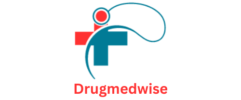Millions of people in the USA suffer from depression and anxiety, conditions that significantly affect their quality of life. Modern medicine offers a variety of anti-depression medications to help individuals manage these mental health challenges. In this comprehensive guide, we will explore the top anti-depression medications that can aid in restoring emotional balance and improving mental health.
Whether you’re new to anti-depression medications or seeking alternatives to your current treatment plan, this guide provides insights into the medications available, their effectiveness, and potential side effects.
Table of Contents
ToggleUnderstanding Depression and Anxiety
Depression and anxiety are among the most prevalent mental health conditions globally, and they often coexist. Depression is a mood disorder marked by persistent feelings of sadness, hopelessness, and loss of interest in daily activities. Anxiety, meanwhile, is characterized by excessive worry, nervousness, and fear. Both conditions can profoundly affect your emotional, physical, and social well-being.
Medications, particularly anti-depression medications, are often a crucial part of treatment. These medications work by altering chemicals in the brain, like serotonin and norepinephrine, which play a vital role in regulating mood. For many individuals, finding the right medication can offer relief from the debilitating symptoms of depression and anxiety, allowing them to lead a more fulfilling life.
Top Anti-Depression Medications
Finding the right anti-depression medication is a process that requires close consultation with a healthcare provider. Different individuals respond to medications in varied ways, and it may take some time to discover which drug works best for your specific needs. Below are some of the top anti-depression medications available in the USA, frequently recommended by mental health professionals.
Selective Serotonin Reuptake Inhibitors (SSRIs) SSRIs are the most commonly prescribed anti-depression medications and are often the first line of treatment for both depression and anxiety. Popular SSRIs include fluoxetine (Prozac), sertraline (Zoloft), and citalopram (Celexa). These medications work by increasing serotonin levels in the brain, helping improve mood and reduce anxiety. SSRIs are known for their effectiveness and relatively low side effect profiles, making them a popular choice among healthcare providers and patients alike.
Serotonin-Norepinephrine Reuptake Inhibitors (SNRIs) SNRIs are another class of anti-depression medications that treat both depression and anxiety. These drugs, such as venlafaxine (Effexor) and duloxetine (Cymbalta), work by increasing both serotonin and norepinephrine levels in the brain. SNRIs are particularly effective in treating major depressive disorder (MDD) and generalized anxiety disorder (GAD), as well as chronic pain conditions like fibromyalgia.
Tricyclic Antidepressants (TCAs) TCAs were some of the earliest anti-depression medications available. Although they are less commonly prescribed today due to their side effects, TCAs like amitriptyline and nortriptyline are still effective for individuals who do not respond to SSRIs or SNRIs. These medications work by increasing serotonin and norepinephrine while blocking acetylcholine, a neurotransmitter that can contribute to depression.
Atypical Antidepressants Atypical antidepressants include medications like bupropion (Wellbutrin) and mirtazapine (Remeron). These drugs do not fit neatly into other categories but are effective for individuals with depression, particularly those who experience side effects from other medications. Bupropion, for instance, is known for its stimulating effects and is often used to treat depression accompanied by fatigue and lethargy. Mirtazapine, on the other hand, is sedating and is often used to treat depression associated with insomnia.

Benefits of Anti-Depression Medications
The primary benefit of anti-depression medications is their ability to reduce or eliminate the symptoms of depression and anxiety. These medications work by balancing chemicals in the brain, helping to alleviate mood disturbances and feelings of fear or panic. As part of a comprehensive treatment plan that includes therapy, exercise, and healthy lifestyle choices, anti-depression medications can help individuals manage their mental health and improve their quality of life.
Additionally, many anti-depression medications are now available in generic forms, making them more accessible and affordable for individuals without insurance or with limited financial resources.
Common Side Effects of Anti-Depression Medications
While anti-depression medications can be highly effective, they are not without potential side effects. The most common side effects associated with SSRIs and SNRIs include nausea, headaches, weight gain, and sexual dysfunction. Tricyclic antidepressants, while effective, tend to have more severe side effects, such as dry mouth, blurred vision, and constipation.
Atypical antidepressants may cause sleep disturbances, appetite changes, or dizziness. It’s crucial to communicate with your healthcare provider about any side effects you experience so that they can adjust your medication or dosage as needed.
Conclusion: Finding the Right Anti-Depression Medication
When it comes to managing depression and anxiety, the right anti-depression medication can be life-changing. Whether you’re exploring SSRIs, SNRIs, TCAs, or atypical antidepressants, consulting with your healthcare provider is essential for finding a treatment that works for you. By staying informed and proactive in your mental health management, you can lead a more balanced and fulfilling life.



